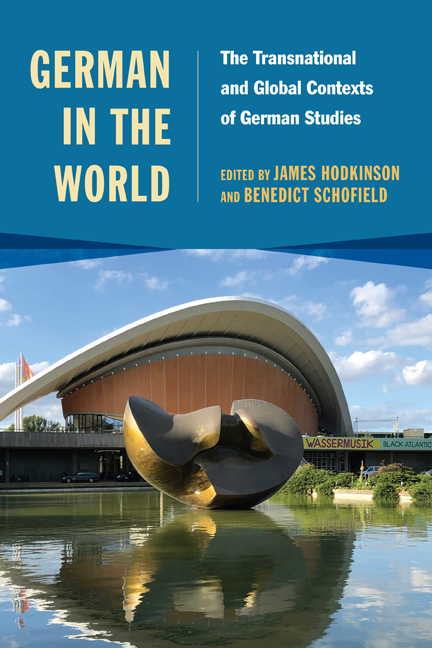5 - “Weltliteratur aus der Uckermark”: Regionalism and Transnationalism in Saša Stanišić’s Vor dem Fest
Published online by Cambridge University Press: 06 October 2020
Summary
The “Migrant” Writer, German “Provincialism,” and the World
THE QUESTION OF WHERE German is in the world is a particularly intriguing one when taking a closer look at German-language writing by authors whose mother tongue is not German and who came to Germany as migrants. Their entry into the German literary canon in the past twenty years or so also sheds a revealing light on the transformations German literature has undergone, and the challenges these pose, due to the global migratory flows of the late twentieth- and early twenty-first centuries and the transnationalism that, partly as a result of this migration, has simultaneously triggered redefinitions as well as redrawings of national and cultural borders as the world becomes increasingly accessible. In the context of this chapter, transnationalism is tied to “our own moment, marked by the escalation of migration and the amplification of technological, financial, and commercial interdependence between nations.” It is precisely this interdependence—the reciprocity between as well as among nations and, on a smaller scale, regions, based on the movements of people and goods, but also of ideas and cultures—that is significant for my understanding of transnationalism here.
Contrary to this idea of transnationalism based on reciprocity, German- language “migrant” writers have often been regarded as a positive, if somewhat one-way, contribution to German literature that spices up the German literary scene, enriches the German language, and opens German up to the world in a way that nonminority writers are perceived to be less likely to do. Despite the clear recognition that migrant writers contribute to German literature rather than to a category of their own, which marks a shift between the 1980s and its Gastarbeiterliteratur (guestworker literature) and the present day with prize-winning novels such as Melinda Nadj Abonji's Tauben fliegen auf (Fly Away, Pigeon), winner of the German Book Prize in 2010, they still teeter on the brink of being “ghettoize[d],” of not being read for the literary value of their works but for their “exotic” biographies that supposedly highlight the worldliness of German literature.
aša Stanišić is a particularly interesting writer in this context. Born in 1978 in Višegrad, Bosnia, Stanišić fled to Germany with his family shortly after the outbreak of the Bosnian War (1992–95).
- Type
- Chapter
- Information
- German in the WorldThe Transnational and Global Contexts of German Studies, pp. 90 - 107Publisher: Boydell & BrewerPrint publication year: 2020

